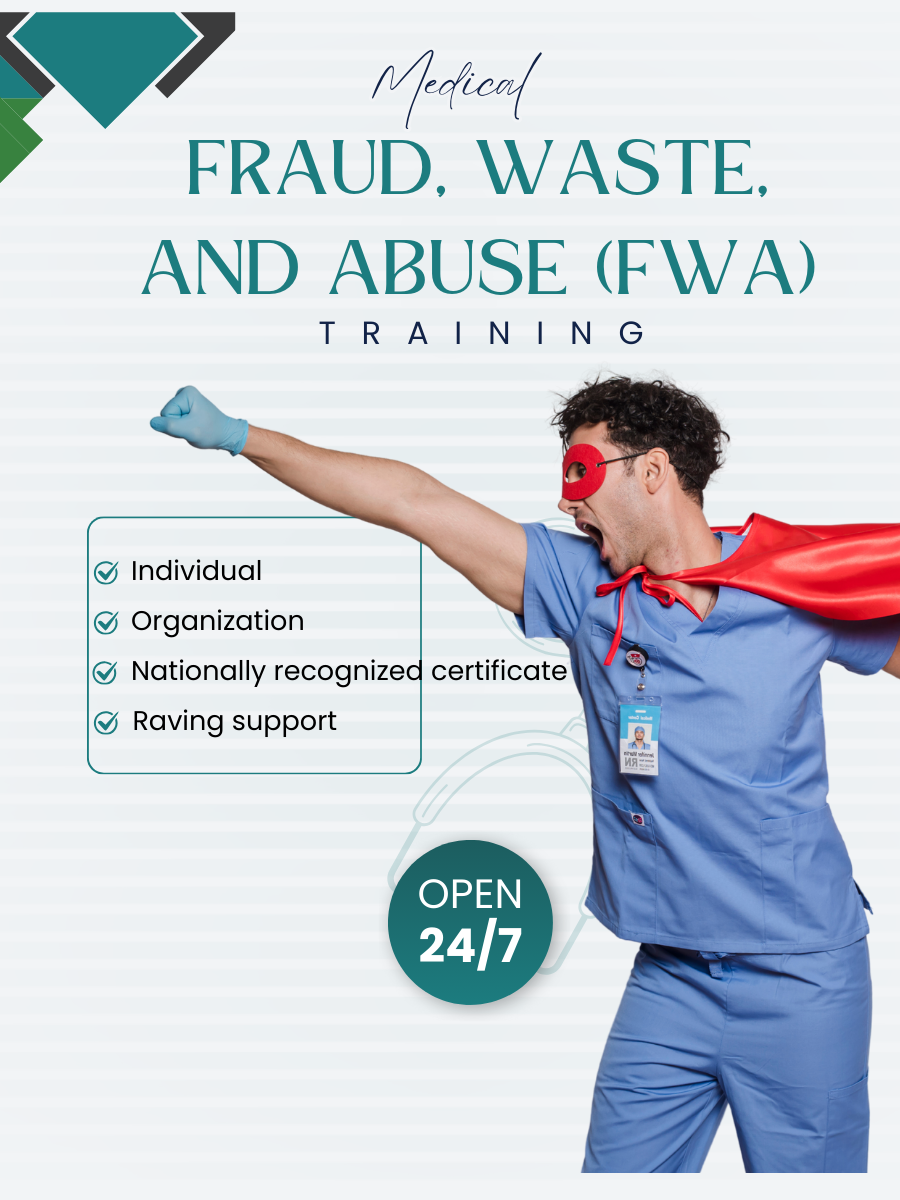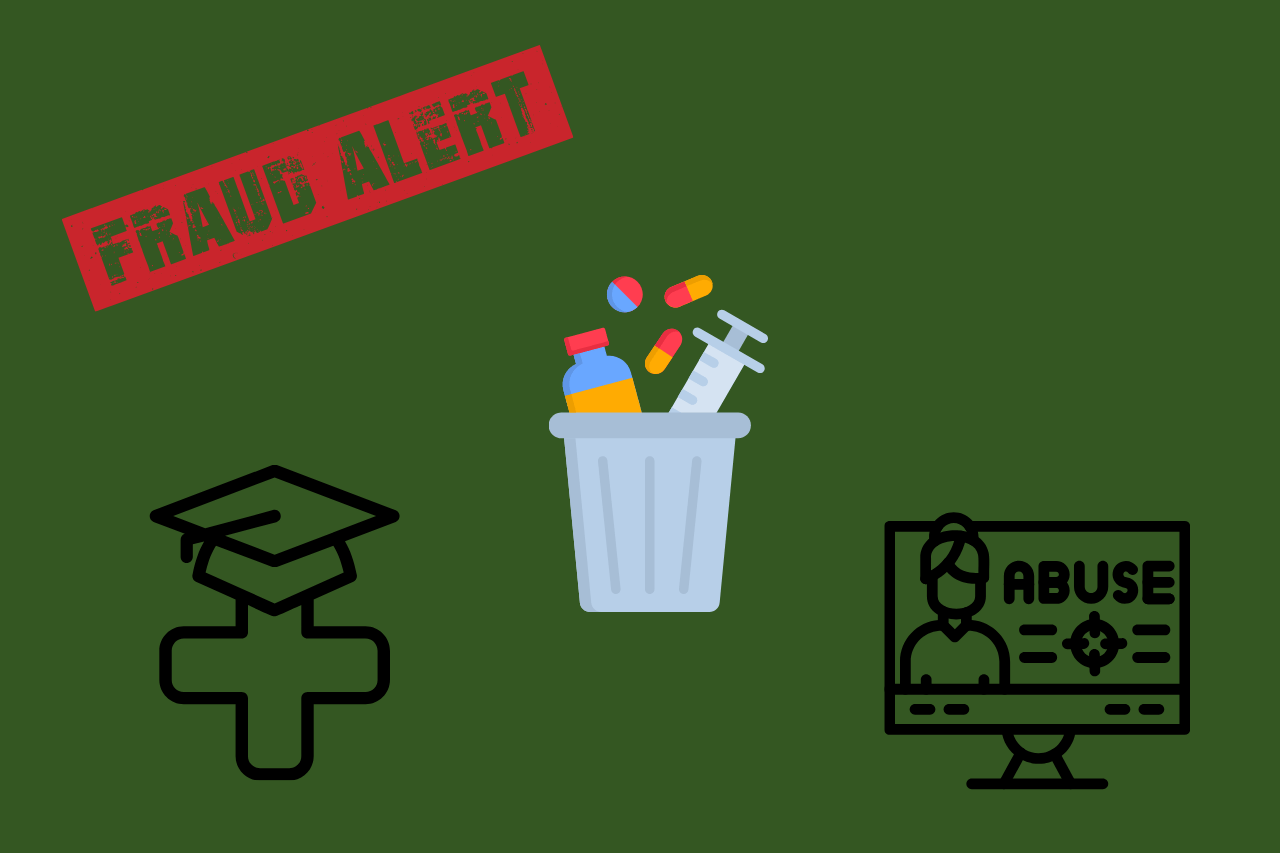Medical Fraud, Waste, and Abuse (FWA) Training
What is Medical Fraud, Waste, and Abuse Training?
Healthcare fraud, waste, and abuse cost the U.S. billions of dollars annually, driving up costs for patients, insurers, and government programs like Medicare and Medicaid. Proper Medical Fraud, Waste, and Abuse Training helps healthcare professionals detect, prevent, and report fraudulent activities, ensuring compliance with federal regulations and protecting patient care.
1. Fraud
Fraud involves intentional deception for financial gain. Examples include:
-
Billing for services not rendered
-
Upcoding (billing for a more expensive service than provided)
-
Unbundling (billing separately for services that should be grouped)
2. Waste
Waste refers to unnecessary costs due to inefficient practices, such as:
-
Overuse of medical services
-
Poor resource management
-
Excessive administrative costs
3. Abuse
Abuse involves practices that directly or indirectly result in unnecessary costs, such as:
-
Charging for medically unnecessary services
-
Misusing billing codes
-
Failing to meet professionally recognized standards

Key Components of Effective FWA Training

Regulatory Compliance
Understanding laws like the False Claims Act (FCA), Anti-Kickback Statute (AKS), and Stark Law
Case Studies & Example
- Real-world scenarios to help identify FWA
Detection & Reporting
Recognizing red flags and knowing how to report suspicious activities
Ethical Best Practices
- Promoting transparency and accountability in healthcare operations
FWA training is mandatory for:
Who Needs Medical Fraud, Waste, and Abuse Training?
-
Healthcare Providers (Doctors, Nurses, Pharmacists)
-
Medical Billing & Coding Specialists
-
Compliance Officers & Auditors
-
Insurance & Medicare/Medicaid Administrators
-
Corporate Healthcare Employees
Our Amazing Clients






Benefits of FWA Training

Reduces Financial Losses
– Prevents costly fraudulent claims

Ensures Compliance
– Avoids legal penalties and fines

Protects Patients
– Ensures proper use of healthcare resources

Improves Reputation
– Builds trust with patients and payers

How to Implement FWA Training in Your Organization?


Choose a Certified Training Program
– Look for CMS-approved courses from OnlineHIPAATraining.Net.

Conduct Regular Training Sessions
– Annual refreshers keep staff updated.

Encourage Reporting
– Establish anonymous hotlines for whistleblowers.

Monitor & Audit
– Regularly review billing and claims for irregularities.
Protect Your Practice, Empower Your Team! 🛡️
Enroll in Our Medical Fraud, Waste, and Abuse (FWA) Training Today and Ensure Compliance While Safeguarding Patient Trust.

Frequently Asked Questions
FWA training educates healthcare professionals on identifying, preventing, and reporting fraudulent activities in billing, coding, and healthcare services. It ensures compliance with laws like the False Claims Act (FCA), Anti-Kickback Statute (AKS), and Stark Law.
Most organizations require annual FWA training to stay compliant with Medicare, Medicaid, and private insurer regulations.
-
Types of fraud, waste, and abuse (billing scams, upcoding, kickbacks)
-
Key healthcare laws & penalties
-
How to detect & report suspicious activities
-
Case studies & real-world examples
Yes! Medicare, Medicaid, and many private insurers require FWA training for employees handling healthcare claims and reimbursements.
-
Internal reporting (company compliance hotlines)
-
Government hotlines (HHS-OIG, CMS Fraud Reporting)
-
Whistleblower protections under the False Claims Act
Yes! we offer CMS-approved online FWA training courses with certificates upon completion.
